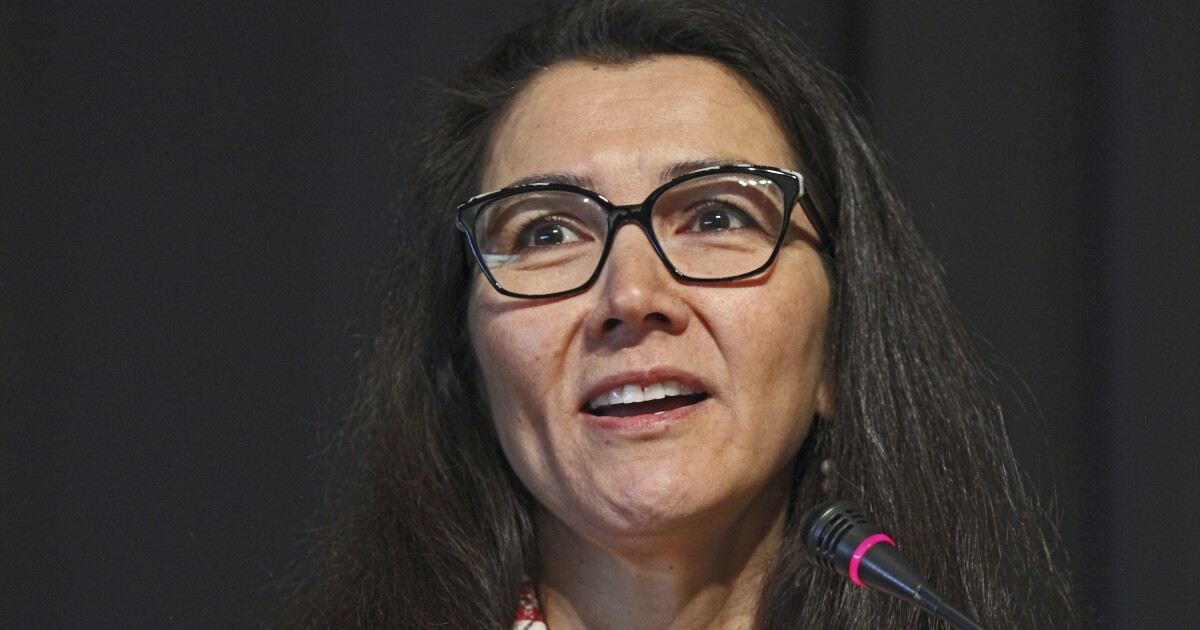

Alaska’s special election for its lone U.S. House seat is still too early to call, but initial returns show Democratic candidate Mary Peltola leading the field. If she is elected, Democrats will have flipped a seat held by the late GOP Rep. Don Young for nearly 50 years, most of Alaska’s history as a state.
SENATE DEMOCRATS EYE SEPTEMBER VOTE TO CODIFY SAME-SEX MARRIAGE
But Peltola told the Washington Examiner she hopes to carry on Young’s legacy of bipartisanship.
“Don Young worked in a very bipartisan way,” she said. “He had more seniority than any other member of the House has ever had, and he welcomed every single congressman into their position, personally. So, he had a very long history of bipartisanship, and I want to emulate that, and I want to emulate his hard work on constituent issues.”
Peltola praised Young for his work bringing “critical infrastructure to our new state that has a lot of really challenging terrain.”
“It’s very hard to build infrastructure and maintain infrastructure in Alaska, and he was so good at that, he really transformed the airports in Alaska to be much more safe than they had been,” Peltola said. “His role on Resources and Transportation made all the difference for our growing state. So, I think it will mean a lot to Democrats, if a Democrat is elected, but I just really want to continue his legacy of fighting for all Alaskans.”
The special election to fill the seat for the remainder of Young’s term following his unexpected death in March is a test case for the Frontier State’s new voting system, which allows four candidates to advance from a primary election, in which dozens of candidates competed in a so-called jungle primary on one ballot, with the top four vote-getters advancing to another round.
Early returns show Peltola leading a field that also includes Republicans such as ex-Gov. Sarah Palin and businessman Nick Begich III, who is from a prominent family of Alaska Democrats. Independent candidate Al Gross, who also advanced from the primary, said shortly thereafter that he would withdraw from both the special and general elections.
Peltola led Palin 38% to 32%, with 82% of the votes counted as of Friday evening. But regardless of who wins the special election to finish Young’s term, Peltola, Palin, and Begich will compete in November, as will a fourth, yet-to-be-determined candidate.
So, who is Peltola, the front-runner to flip Alaska’s only House seat?
Peltola told the Washington Examiner she grew up helping her father’s salmon fishing business from the time she was about 6 years old.
“He was very, very cheap and didn’t want to hire a real crew member,” she joked.
Peltola began her career as a herring and salmon technician for the Alaska Department of Fish and Game before running for the state legislature, mounting an unsuccessful bid at 22. Two years later, after she was married and expecting a child, she won a seat in the statehouse, where she remained for 10 years.
During her time in the legislature, Peltola said, she was a member of and then a chair for the Bush Caucus, a bipartisan group of legislators from rural parts of the state, and she enjoyed the across-the-aisle cooperation they shared.
“It was a different era, the 1900s,” she quipped. “There was so much more civility and cooperation at that time.”
She later joined the Kuskokwim River Inter-Tribal Fish Commission to protect salmon runs in the state. Peltola and her husband Gene have seven children and two grandchildren.
Unless the top vote-getter in the U.S. House race has more than 50% of the vote once all initial ballots are counted — which does not appear to be the case in this race, according to the initial returns — the elections division will then count voters’ ranked choices. The last-place candidate is then eliminated, with his or her voters’ subsequent choices going toward their next choice’s tally. The process goes on for as many rounds as it takes until one candidate reaches a threshold of 50% plus one vote and is declared the winner.
Under state law, Alaska’s Division of Elections must count every ballot before it begins tabulating ranked votes. The state permits ballots mailed from overseas voters to be accepted until Aug. 31 as long as they are postmarked by Election Day, so the candidates and the state must wait until then to know who will fill Young’s seat for the remainder of his term.
Peltola seemed undeterred by the prospect of waiting weeks for official results and offered praise for her Republican rivals, saying she had a friendly relationship with both, especially Palin, whom she knew during her time in the legislature.
“Sarah was governor the two years that coincided with my last two years in the state House, and we happened to be pregnant at the same time with our now 14-year-olds,” Peltola said.
The state’s ranked-choice voting process has been criticized in some quarters as messy and confusing for voters, but Peltola offered praise for it, saying it opens new avenues of discussion between voters and candidates across party lines and can help reduce partisanship.
“I’m very optimistic because these closed party primaries have led to a situation where Republicans are trying to out-Republican each other, and we end up with candidates who are very, very extreme, and sometimes even fringe, who are then representing people who are mostly very middle of the road,” she said.
Peltola said, “People are now conditioned to expect it to be ugly,” and it doesn’t have to be that way.
At an event featuring all three candidates, Peltola said she spoke with voters bearing Palin or Begich signs, asking them to consider ranking her as their second choice.
“If I see someone with a Sarah sign or a Nick sign, I can certainly understand why that’s their first choice. And I’m so hopeful that they would consider me as their second choice. And I think they were just surprised to see somebody say, ‘Hey, I get it, that’s a great person, but I’m not so bad either.”
As the ranked choices are tabulated, it is those second choices that could make all the difference.
CLICK HERE TO READ MORE FROM THE WASHINGTON EXAMINER
Dave Wasserman of the nonpartisan Cook Political Report said this week Peltola “has a legitimate shot to win” under the new ranked-choice system.






